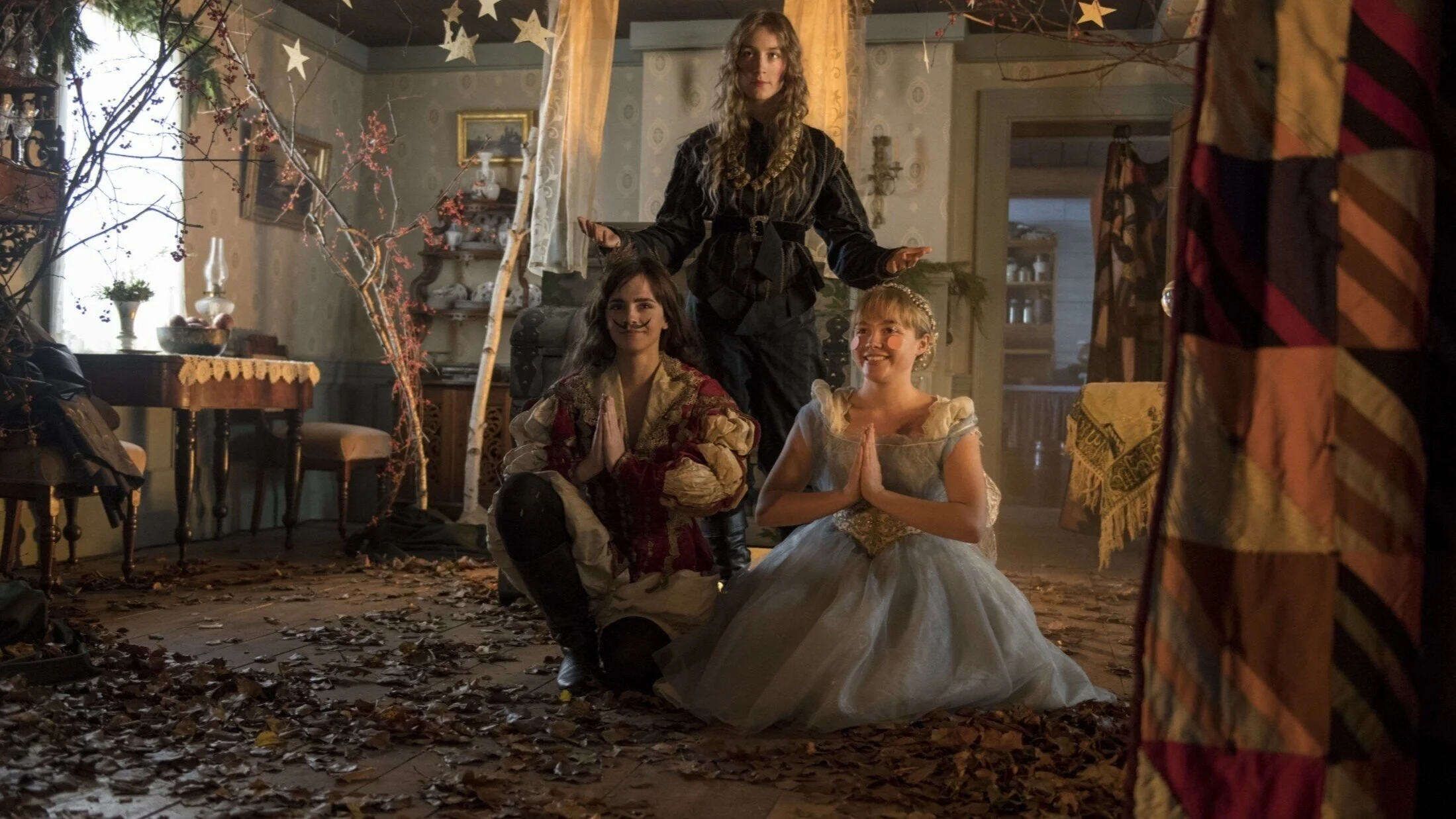Little Women
A new version of the classic story contains both greatness and miscalculation.
Emma Watson, Saoirse Ronan and Florence Pugh
It is not unknown for a film to be described as a work in which the parts are greater than the whole. However, in making that the verdict on this latest screen treatment of Little Women, I am applying the term in a very specific and unusual way. Greta Gerwig is both writer and director here - this being her follow-up to her very successful debut in those roles in 2017's Lady Bird - and in now adapting Louisa May Alcott's celebrated novel first published in 1868 she has created a version in which each of the main characters is magnificently realised.
That the film should have such a great cast naturally adds to the impact, not least when it comes to the four siblings who are the central figures here: Saoirse Ronan as Jo March, the tomboy who puts her writing ambitions before marriage, Emma Watson as Meg the eldest sister who marries for love, Florence Pugh as Amy the hot-headed one who wants to be a painter but only if she can show genius doing it and Eliza Scanlen as Beth, the youngest and the one whose talent (as a pianist) displays the most fully realised artistic skill at this early age. We already know Ronan and Pugh as brilliant actresses, but Watson is better than ever before and the less fully established Scanlen is not left behind. There's also fine support from a range of distinguished players including Laura Dern (cast against type as their affectionate mother), Chris Cooper, Meryl Streep (in the subsidiary role of Aunt March) and, playing potential beaux for the girls, Timothée Chalamet, Louis Garrel and James Norton. Indeed the acting throughout leaves nothing to be desired.
Similarly, Gerwig's screenplay is admirably adroit in bringing all of the characters to life, but especially the four contrasted sisters. The crux of the tale lies in their attempts to find their own paths in life both through artistic pursuits and in finding the right man, the latter regardless of the 19th century view inherent in many families like this one that a rich catch should be the goal. In terms of where it leads, Alcott's story brings much popular appeal to the table (it has, after all been notably filmed before this in 1933, 1949 and 1994). That it is less outdated than one might suppose for today's audiences lies partly in its being a work in which the four heroines are in effect far more important than the male characters and in the skill with which Gerwig's screenplay brings out in an unforced way the themes inherent in it, that is to say the situation of women in 19th century society, their difficulty in seeking to be taken seriously in their artistic endeavours and the challenges they face in seeking to ignore the expectations based on class and money that the world (and not least Aunt March) has for them.
With all this going for it, it is no wonder that much here is great (and, indeed, early reviews had suggested that Gerwig's film was a huge success). However, consider it as a whole and one has the other side of the coin. It is a minor blemish that in keeping it sharp rather than musty the storytelling occasionally involves editing that feels too quick for comfort. Far more serious is the decision to tell the story out of chronological order. As a means of grabbing attention at the outset, it is reasonable enough that we should first see Jo in New York having travelled there from Concord, Massachusetts, to offer one of her tales to a publisher (Tracy Letts), but this leads to frequent cutting between this period and days already gone. This can be confusing, but more than that it disrupts the flow of the narrative and reduces the impact of the story (thus, to give just one example, it feels distracting to have a scene showing Meg's married life when that comes up before we have a later scene in one of the flashbacks showing her actual marriage). I am not sure either about the tongue-in-cheek play when the film reaches its conclusion between what is supposed to happen to bring about a happy ending and a fictionalised version of it. But, above all, while the performances make the film well worth seeing, the restructuring of the story seems to me so misguided that it weakens the piece considerably.
MANSEL STIMPSON
Cast: Saoirse Ronan, Emma Watson, Florence Pugh, Eliza Scanlen, Timothée Chalamet, Laura Dern. Louis Garrel, James Norton, Chris Cooper, Meryl Streep, Tracy Letts, Bob Odenkirk, Jayne Houdyshell.
Dir Greta Gerwig, Pro Denise Di Novi, Amy Pascal and Robin Swicord, Screenplay Greta Gerwig, from the novel by Louisa May Alcott, Ph Yorick Le Saux, Pro Des Jess Gonchor, Ed Nick Houy, Music Alexandre Desplat, Costumes Jacqueline Durran, Dialect coach Sam Lilja.
Columbia Pictures/New Regency Pictures/Pascal Pictures/Regency Enterprises/Sony Pictures Entertainment-Sony Pictures.
134 mins. USA. 2019. Rel: 26 December 2019. Cert. U.


